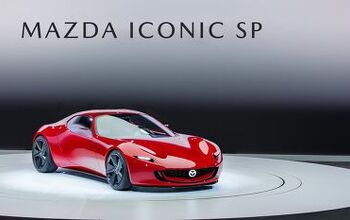Ford Recalls Green Car Charging Cords Because House Fires Aren't Good For the Environment

Going green shouldn’t lead to the appearance of orange flames, so Ford Motor Company wants you to bring your charging cord back to the dealer. A number of fires associated with the 120-volt factory charging cord provided with C-Max and Fusion plug-in hybrids, as well as the Focus Electric, forced Ford’s hand in the recall.
It seems some owners’ wall outlets aren’t the beefy piece of infrastructure Ford engineers assumed, but some owners can be faulted for using a cheap extension cord to “refuel” their environmentally sensitive ride.
The recall covers cords provided with Fusion Energi and C-Max Energi models from the 2013 to 2015 model year, plus the 2012-2015 Focus Electric. The 120V convenience charger, also known as a trickle charger, allows owners to plug in their PHEV or EV into a standard wall outlet, but not all wall outlets (or breakers) are made equal.
“Using the 120-volt convenience charge cord originally provided with the affected vehicles with an AC outlet that is not on a dedicated circuit or is damaged, worn or corroded may result in increased temperature at the wall outlet and potentially lead to a fire,” the automaker stated.
Ford claims it’s aware of a number of fires linked to this issue. Continent-wide, some 50,524 vehicles left the factory with this cord on board — 49,197 in the United States and its federalized territories and 1,327 in Canada.
In its mail-out to owners, Ford plans to remind these greenies of what constitutes a proper wall outlet, as well as warn them not to use an extension cord “under any circumstances.” (The owner’s manual originally stated this.) Recalled vehicles gain a new version of the 120V cord, this one containing a thermistor to identify when things are heating up at the wall outlet and shut off the flow of charged particles if necessary.
Most trickle charge cords draw about 12 amps, which theoretically shouldn’t be a problem, as household wall plugs are capable of providing 15 amps. However, unless your garage plug is on a dedicated circuit, lights and appliances can suck away that current. That’s when things heat up at the plug-in point. Connecting your PHEV or EV to the outlet with an extension cord of insufficient gauge also runs the risk of impromptu pyrotechnics.
[Image: Ford]

More by Steph Willems
Latest Car Reviews
Read moreLatest Product Reviews
Read moreRecent Comments
- ToolGuy TG likes price reductions.
- ToolGuy I could go for a Mustang with a Subaru powertrain. (Maybe some additional ground clearance.)
- ToolGuy Does Tim Healey care about TTAC? 😉
- ToolGuy I am slashing my food budget by 1%.
- ToolGuy TG grows skeptical about his government protecting him from bad decisions.


































Comments
Join the conversation
Didn’t the Volt have to downgrade its home charging rate a few years ago, because the charge cable was getting too hot?? Is this the same issue with different solutions?
You can blame home owners and builders for this all you want, but didn't Ford prove there was some problem by adding a thermal switch to the cord? That's a good idea in any major appliance. I've heard no word of this on my 2017, and it appears to charge just fine, though it's powered from my home office, with lots of other loads.